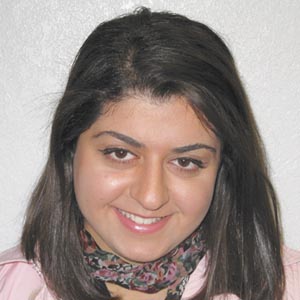Emma Shaljyan
Staff Writer

Growing up in Armenia I remember the most discussed topic in my Armenian literature classes was about the panduxts [expatriates]. Every year we read stories and poems about panduxts—people who left their native land because of circumstances, and missed their native land more than anyone could imagine.
I knew the meaning of the word, but I did not really KNOW the true meaning of it. Looking back, I don’t think my teachers knew the true meaning of it either. Yes, they taught us about panduxts, but they only knew as much as they read.
I remember reading stories about panduxts, as a teenager, and laughing. I thought of these people as fools, people who did not know what they wanted in life. I did not understand their reasons for leaving their native land, then missing it until it hurt, but never returning back. I did not follow their logic, or may I say, lack of logic in what they did and felt. You never truly understand someone, until you walk in his or her shoes. Today, I walk in their shoes, and believe me, stories about panduxts are not close to being funny.
I had always dreamed of living somewhere else, and when the opportunity arose I was extremely happy. My country seemed to have closed the door to a better future for its people and I was happy to have a chance at a new and better life.
As the day of my departure grew closer, my happiness began fading. I started to realize that I was going to lose something very meaningful in my life. During my last day in my country, there was so much tension in my body that I was fighting with what I wanted before, to leave, and what I wanted now, to stay.
The hardest part was leaving my home—HOME, where I took my first steps, said my first words, had my first laugh, and shed my first tear. It’s where we spent time with my dearest family members, where we spent most of our birthdays, a home that no other place in the world could replace. I walked out into the yard, where my childhood was spent and saw the garden that my grandpa took care of with the greatest pleasure. I saw the apricot tree and grapevines that he had planted with his own hands, saw the land that he watered every week, and I did not want to let it go. I did not want to lose this treasure, this beauty I saw everyday. Even though my heart was begging me to stay, I had to leave my home. I cried realizing the reality of what was happening. I cried because of the unknown—when would I be back? Or would I ever come back?
As the plane started its engine I felt another loss—this time it was the loss of my country. It was at this moment I felt how separated I was from my land. An emptiness took over me, I felt nonexistent, as if my body was there, but that I was not really there. The higher and higher the plane flew, the more I began to appreciate Armenia, but it was all too late.
Walking on the streets of this new country felt unreal. I was walking but wasn’t seeing the sights I was used to. I felt powerless when I realized the real impact distance has, and with this realization I felt very small and weak. It was then that I realized I could no longer walk to Republic Square, the Opera House, or the Cascade. The distance broke me down.
I dreamed of my home often. It took me a long time to distinguish my dreams from reality. I lived in my dreams, and lived in my nightmares. I could not control the situation, no matter how hard I tried. My dreams seemed more real than my actual life. I enjoyed the life that I lived in my dreams—I laughed and had fun, like I had in Armenia.
It is true when people say that time is the best medicine, because time did heal me. As the years passed, I began to feel like I belonged again. Even though the time healed my heart, my heart will never be the same. Time healed the wounds, but didn’t get rid of the scars, the memories of my past, my native land.
You never appreciate what you have, until you lose it. Reflecting back, I did not appreciate Armenia enough while I lived there. I now have a big scar in my heart. A scar left by the distance. A scar left by my home. And no matter how much I smile and how much I succeed in life, nothing will heal this scar. Nothing will heal this scar because my heart was left in my home, in Armenia.
 Hye Sharzhoom Armenian Action
Hye Sharzhoom Armenian Action